The best miniseries on HBO Max

Streaming libraries expand and contract. Algorithms are imperfect. Those damn thumbnail images are always changing. But you know what you can always rely on? The expert opinions and knowledgeable commentary of The A.V. Club. That’s why we’re scouring both the menus of the most popular services and our own archives to bring you these guides to the best viewing options, broken down by streamer, medium, and genre. Want to know why we’re so keen on a particular show? Click the “read more” link for some in-depth coverage from The A.V. Club’s past. And be sure to check back often, because we’ll be adding more recommendations as shows come and go.
Sometimes, you want to stream a show that’ll keep you swimming in episodes for days, weeks, or months. Other times, you’d just like something that’ll tide you over for a long weekend, or as a breather between longer marathons. The latter case is well suited to the HBO Max TV library, which houses some of the finest work in the form that we used to call the miniseries—particularly from that brief window between network dominance and the rise of the FX-Ryan Murphy Complex when HBO gobbled up any and all awards dedicated to programming in the five- to 10-hour range. (Just don’t call them 10-hour movies.) From historical epics and true-crime documentaries to the granddaddy of all primetime TV events and adaptations of source materials either too dense or too complex for a more traditional page-to-screen adaptation, these are the best miniseries currently streaming on HBO Max.
In the mood for something more dramatic? Or comedic? Or out-of-the-ordinary? We’ve got you covered there, too: Check out or guides to the best TV dramas, best TV comedies, and best genre series on HBO Max.
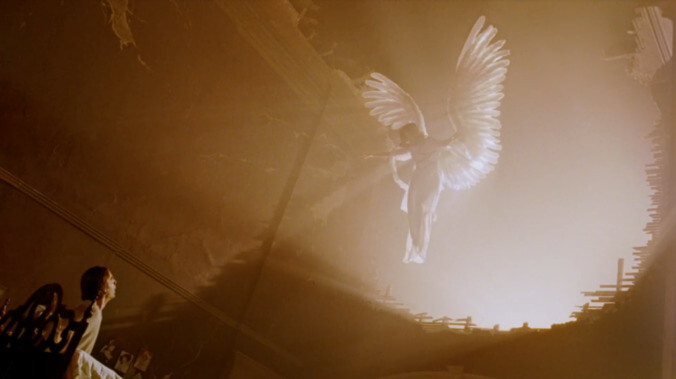
From :HBO had a real job of work on its hands when it decided to give over seven hours of programming to an adaptation of Tony Kushner’s award-winning play Angels In America. There were those who thought that Kushner, adapting his own work, would get overindulgent, and others who thought the play—written a dozen years previous and set at the height of the AIDS panic—was past its sell-by date. HBO disagreed, and went all-out with the production. They hired Mike Nichols to direct, populated the cast with heavy hitters like Al Pacino and Meryl Streep, and commissioned Thomas Newman to provide a memorable score. Angels cost a fortune, and though not every one of its 352 minutes works, it’s rightly remembered as a masterful miniseries, and home to one of Pacino’s finest latter-day performances.
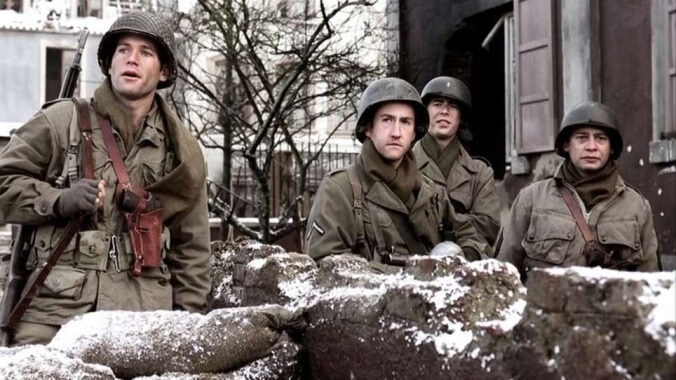
From :HBO’s World War II miniseries dealt with more traditional “men on a mission” stories, letting audiences get to know a group of soldiers as they journeyed from basic training to the European theater, before ending at Hitler’s abandoned “Eagle’s Nest.” But though this Steven Spielberg/Tom Hanks-produced event is more about the grand bonding adventure of war than about murderous psychopaths and dangerous incompetents, Band Of Brothers doesn’t shy away from the real-world effects of combat, such as shell shock, alcoholism, a general hardening of the heart, and—not incidentally—death. The series has a narrative sweep and some emotional swells, but it never feels less than truthful.
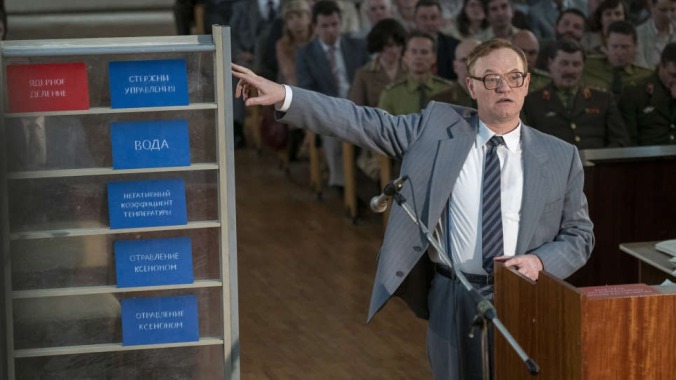
Chernobyl tells its story directly. Showing the disaster’s grisly effects on people’s bodies—the suppurating wounds and bloody coughs—underscores how it is the weakest who most suffer from the powerful’s wrongdoing. When you’re not the terrified worker who’ll be sent into an obliterated reactor core because of a rushed test gone wrong, it’s easier to ignore the truth. “What is the cost of lies?” Jared Harris’ despairing physicist utters in the series’ first moments. The following six hours give one devastating answer. []
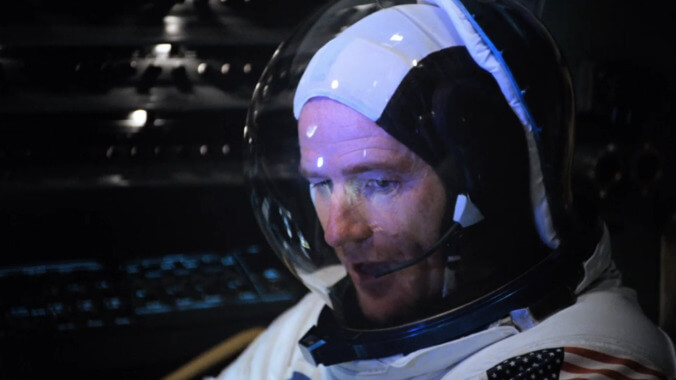
From :It may take a “no biggie” attitude to execute something as complicated as making a movie or landing human beings on the moon. But do we all have to be as jaded as the people pulling the strings?Consider From The Earth To The Moon itself. At the time that it aired, it was a major event: for television, for cable, and for HBO. The channel was about to lose , its most acclaimed original series. Oz had only been around for a year. would debut that summer. was nearly a year away. The revolution in original cable programming—and the subsequent rise of “prestige TV”—was still on the horizon. So an expensive HBO miniseries from Tom Hanks (and his co-producers Ron Howard and Brian Grazer) was a huge deal in the spring of 1998.Today, the arrival of a From The Earth To The Moon would still be highly touted, but would also be greeted by its potential audience as just something else to feel guilty about letting pile up on the DVR. We see big-budget shows all the time now, often created by and/or starring Hollywood A-listers. People are working very hard every day to bring us sophisticated stories told with polish and panache, but we’re not as impressed as we used to be. We’ve seen it.Times change, though, and it’s not inconceivable that someday soon we’ll be in a television landscape exclusively populated by small-scale, low-budget shows, consigned to subscription services we can’t recall if we’ve paid for or not. Perhaps then we’ll look back at the era of and the way that Hanks on the From The Earth To The Moon DVD looks back at the Apollo program, geeking out over the actual NASA artifacts he remembers from the lunar missions he watched as a teenager.
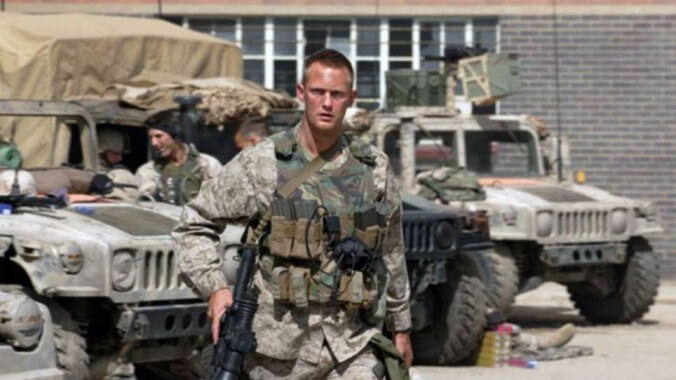
From :It’s no coincidence that this intense, impressive seven-episode look at the early days of the Iraq War was the work of the men who made The Wire; the two projects share the same love of internal argot, the same sensitivity to men doing a dangerous job that some of them don’t really believe in, and most of all, the same cutting perspective on how those at the bottom of a broken system are perpetually frustrated by the bad decisions of those at the top. Embedded reporter Evan Wright was the perfect choice for Ed Burns and David Simon’s source material; his slightly skewed but perfectly sound journalistic approach mirrors their own, and helps imbue Generation Kill with humor and humanity.
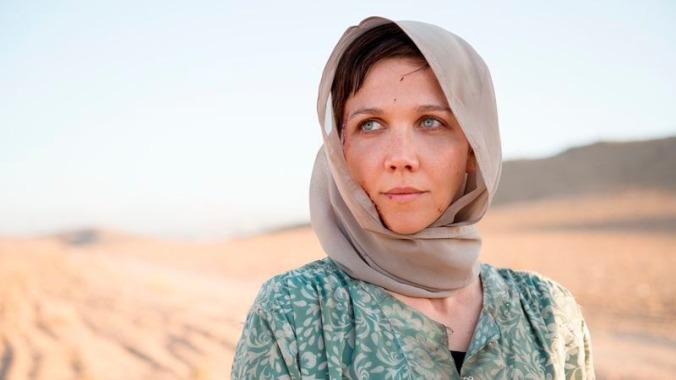
In The Honorable Woman, the protagonist is 36-year-old Nessa Stein (Maggie Gyllenhaal), the British-Israeli daughter of an arms dealer and CEO of the company he founded, who in the first few moments of the miniseries is sworn into the House Of Lords. Nessa witnessed her father’s murder as a child, and the series starts the story in the same restaurant, 28 years later, as Nessa announces a business deal. That’s a small detail, but it speaks to one of The Honorable Woman’s primary motifs: a conscious looping back to spaces marked by the past. And because this is the story of a family stuck in psychological limbo between Israel and Palestine, most of those spaces are marked with blood. []
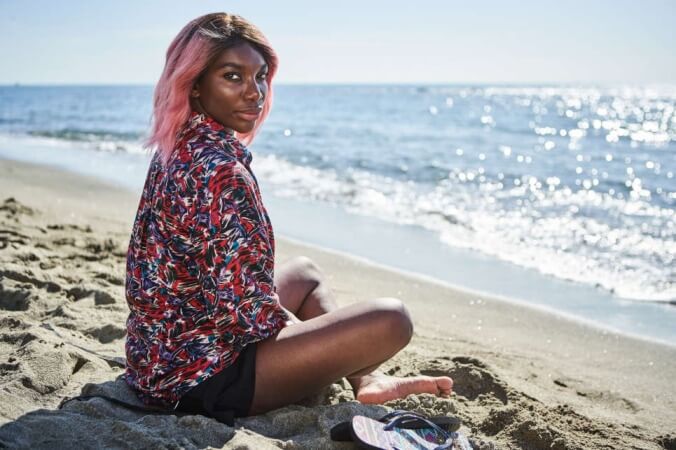
Where some series add, Michaela Coel’s hosts a singular conversation on sexual violence and the path to healing. The HBO series is a deeply personal work for the multi-hyphenate, which lends it a great deal of power, but Coel isn’t interested in monologuing. In its important and nuanced discussion on victimhood (imperfect and otherwise), trauma, and recovery, I May Destroy You makes room for all manner of survivors, including male victims who are too often stigmatized. Even more impressively, the series gives interiority and vibrancy to all of its characters, refusing to define them solely by what happened to them. And Coel establishes herself as one of the most consummate storytellers out there, building the series from the inside out—she gives a bravura performances as Arabella, moving effortlessly from impishnness to devastation to rage, taking from a scene just as much as she brings to it. I May Destroy You even provides its own compelling look at Black British life, from navigating adolescence in predominantly white schools to the house parties that can break out into colonizer discourse. Despite the tacit promise of its title, I May Destroy You is one of the most life-affirming series of the year. []
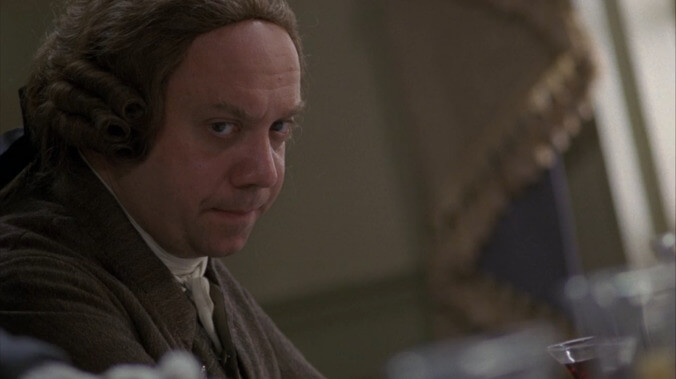
From :Like the best historical dramas, HBO’s eight-hour study of America’s second president succeeds at making the past look curious and alien, while making the people and their interactions with each other look familiar. Credit the performances of Paul Giamatti as the cranky, idealistic-yet-oft-traditionalist John Adams, and Laura Linney as his wife, who was frequently abandoned on the front lines. Their lifelong romance—through brutal political maneuvering, troubles with their kids, and more travel than nearly any other couple of their generation had to endure—grounds A Tale Of Important Figures in something clear and common.
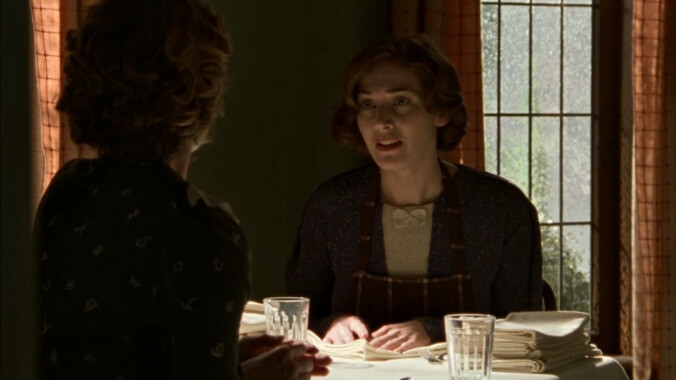
From our list of :Adapting James M. Cain’s novel into the three-night, five-and-a-half hour sprawl of a miniseries may seem like an indulgence, but Todd Haynes uses the time for a luscious, evocative melodrama that doesn’t lack for period (or emotional) detail. Zagging where the 1945 noir version zigged, Haynes’ Mildred Pierce casts Kate Winslet as a much earthier Mildred than Joan Crawford and builds the film around her determined and methodical quest for self-determination. Being a housewife in Depression-era California, Mildred’s efforts to hold on to her middle-classic lifestyle in the wake of her separation from her adulterous husband (a stand-out Bryan F. O’Byrne) meet with strong resistance. Though Haynes views her plucky entrepreneurship with the empathy and awe it deserves, Mildred Pierce doesn’t spare the consequences of her ambition, either, particularly in her toxic relationship with a daughter (played as an adult by Evan Rachel Wood) who seems determined to hurt her. The miniseries format allows Haynes to give the film the feel of a great novel unfolding, so viewers not only know everything about the characters, but also how to open their own chicken-and-waffles restaurant in the early ’30s.
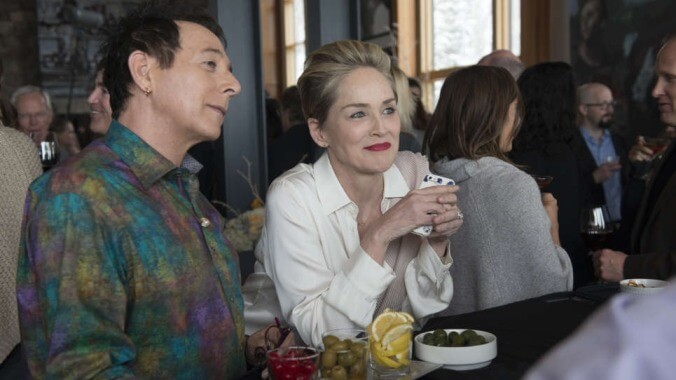
It’s still mildly astounding that a new small-screen masterpiece from one of the country’s most interesting living filmmakers has flown so far under the radar. Steven Soderbergh’s Mosaic is many things: a murder mystery, a deconstruction of narrative storytelling, a Robert Altman-like landscape of characters living their lives—but above all, it’s a damn good yarn, the kind of tale that sticks in your mind and lingers on long past the final cut to black. What begins as the tale of a grifter (Frederick Weller) hired to seduce a wealthy children’s author (Sharon Stone) as part of a plot to acquire her panoramic Utah property soon spins into a far more complicated tapestry of small-town politics, deadly intrigue, and a key plot point hinging on whether someone went to see one of the Star Wars prequels the night he claims he did.Soderbergh coaxes superlative performances from his entire cast, including Garrett Hedlund, Jennifer Ferrin, and what deserves to be a star-making turn from longtime character actor Devin Ratray, who has come a long way from Home Alone’s Buzz to deliver a powerfully soulful performance of understated grace as the local sheriff dealing with a growing fear that the wrong man might be in prison. Mosaic is smart, challenging, and electric in its gripping narrative; this is everything you could want from limited-series storytelling. []
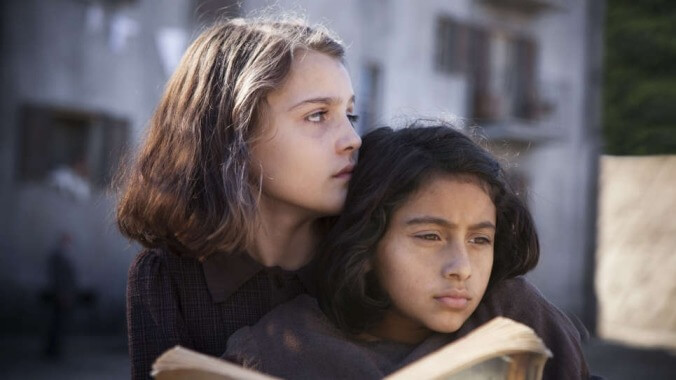
Elena Ferrante’s Neapolitan Novels present a daunting task for anyone looking to adapt them—the Naples setting could easily fuel the imagination of a cinematographer, but Ferrante’s forthright and intensely personal prose is harder to translate, as so much of the story unfolds internally, in reverie. Elena’s (or Lenu) private thoughts as she gets to know Rafaella (or Lila) are fascinating to read, but could easily become unwelcome in a voice-over narration. Luckily, director Saverio Costanzo uses the latter sparingly in his Italian-language series. My Brilliant Friend tells the story of a most unforgettable friendship, between two girls who would seem to have nothing in common but a desire to disrupt their bucolic existence. But it’s also a specific tale of a female friendship that’s been bettered and fortified by conflicts on a personal and global scale. That’s a lot to rest on the shoulders of Elisa del Genio and Ludovica Nasti, the young actors who play the friends in childhood, but they are more than up to the challenge. []
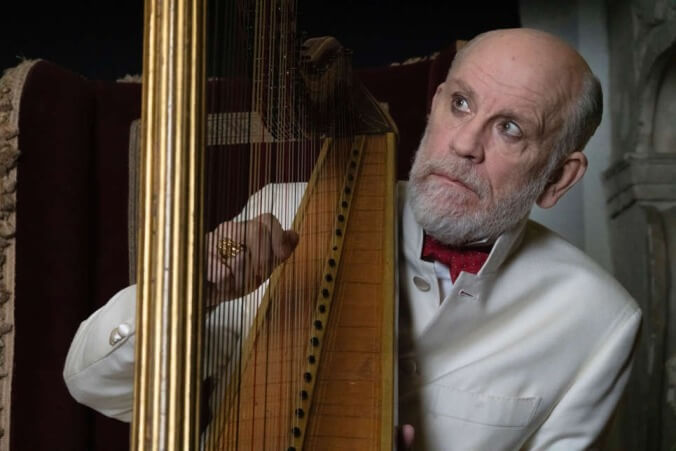
was Paolo Sorrentino’s surreal, lushly produced drama about cultivating absolute power (and, to a lesser degree, putting together a fabulous wardrobe for Jude Law). Naturally, the follow-up series, The New Pope, is about holding onto it (the clothes, too). Law’s Pius XIII returns to battle Pope John Paul III, the eponymous New Pope played by John Malkovich in unfettered form. The official trailer for the series, which is once again an international collaboration by HBO, Sky Atlantic, and Canal+, is more bonkers than a million . It’s clear that John Paul III, who became pope after Pius XIII fell deathly ill, views his predecessor’s recovery as anything but a miracle. But he’s in for the fight of his life with Pius, a.k.a. Lenny, who’s packing Jude Law abs, a white Speedo, and an army of followers who are willfully ignoring that whole “false idols” things in the commandments. []
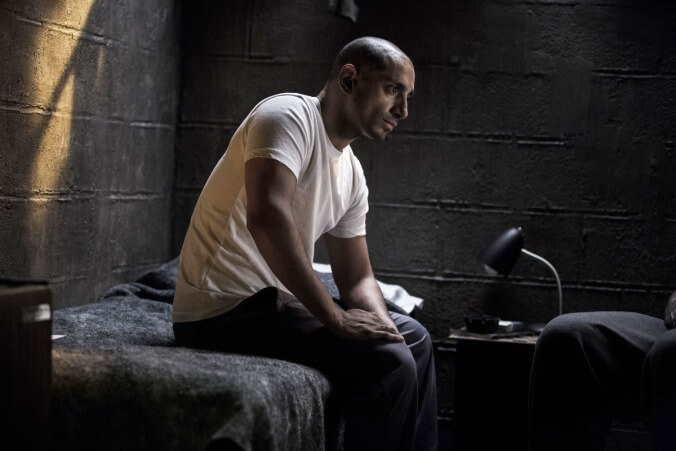
Richard Price likely leaped at the opportunity to adapt Criminal Justice based on its synopsis alone: Peter Moffat’s British miniseries follows one man through the entire justice system, a topic that Price had already thoroughly dissected in his novel and in so many episodes of . But Price’s American adaptation, The Night Of (co-written with Oscar winner Steve Zaillian), is so much more than its elevator pitch, homing in on the metamorphoses of the supporting characters as well as the accused. Yes, it’s the protagonist—a Pakistani-American man named Nasir “Naz” Khan (Riz Ahmed)—who’s at the center of a legal cyclone after being suspected of murdering a young woman during a night he can’t remember. And yes, it’s Naz who undergoes the most obvious transformation, physically and mentally steeling himself while he’s incarcerated so he can survive. But his journey also has severe effects on his attorney (an eccentrically weary John Turturro), his parents (Peyman Moaadi and Poorna Jagannathan), and his mentor in prison (Michael K. Williams). Even the detective that put him there (Bill Camp) starts to question his once-unwavering faith in Naz’s guilt. In that way, The Night Of shows the vampiric effects of a high-profile court case, how it saps the energy and permanently alters all involved. When it’s over, how has it changed the characters’ views on race? On police? On family, on romance, on convicted criminals? Soberly presented with almost no stylization, all of these storylines depict the justice system as a dulled meat grinder—not chewing people up and spitting them out as much as slowly eating away at them over long periods of time. []
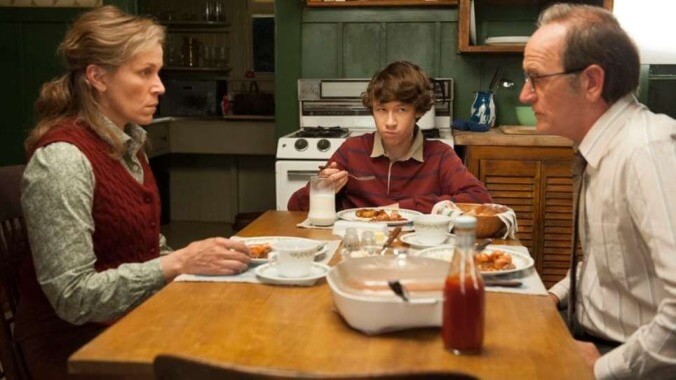
Set in the fictional small town of Crosby, Maine, the series follows moments in the lives of a small cast of characters in the orbit of junior high teacher Olive, be they family, acquaintances, or students. The series understands perfectly what so many other stories about cute, quirky small towns miss: Like overgrown briar patches, the people of small towns grow together, forming unwieldy bonds that are impossible to untangle, often impenetrable from the outside, thanks to a prickly exterior that, under the right circumstances, still bear the fruits of human kindness beating away somewhere deep within. There are many things that Olive Kitteridge gets right, but none so significant as how brilliantly it simultaneously captures the deep, pervasive stillness and the close, suffocating entanglement of small-town living. []
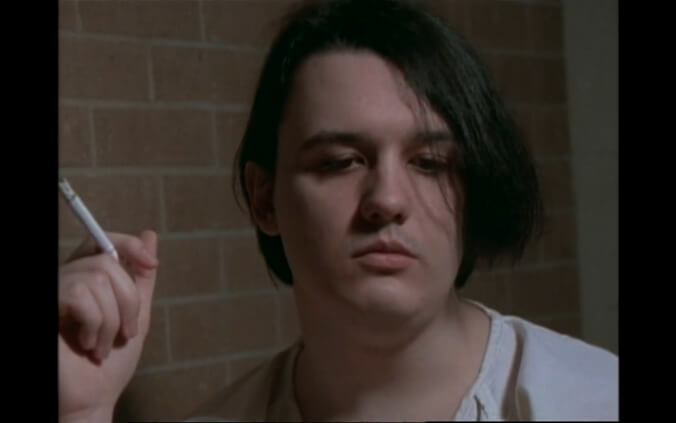
From the Inventory “”:The Paradise Lost documentaries—there are three—feel the closest in spirit to Making A Murderer, because they’re about people who were convicted seemingly just because of who they were. In this case, it was three Arkansas teenagers who liked metal, dressed in black (sometimes), and were sarcastic in the withering way that teenagers always are. In this case, it got them railroaded into a conviction for the murder of three young boys, and a death sentence for the “leader,” Damien Echols. The conviction was largely due to the confession of one of the alleged killers, which was obtained in the same coerced manner that Brendan Dassey’s was in Making A Murderer. (Both were teenagers with intellectual disabilities.) No one doubts that the Paradise Lost films brought the attention to the West Memphis Three that eventually freed them, and there’s obviously hope that Making A Murderer will have the same effect on public outrage that Paradise Lost did. []
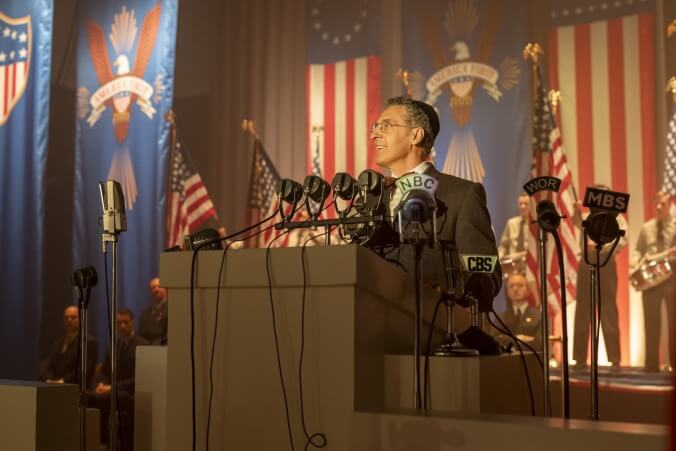
Picking up the difficult-but-necessary-watch torch from 2019’s , The Plot Against America is a dystopian tale for these times. David Simon and Ed Burns’ adaptation of Philip Roth’s novel of the same name exposed the extent to which inequity is a feature, not a bug, of governance in this country. As the amply demonstrated, a story about fascism and demagogues needs to run on more than timeliness; thankfully, The Plot Against America dug into individual character motivations, exploring accountability at even the most seemingly insignificant level. The exceptional cast—including John Turturro, Morgan Spector, Zoe Kazan, and Winona Ryder—helped audiences make sense of a nightmare that is inching too close to reality. []
This miniseries adaptation of Pride & Prejudice is still the gold standard, with a stoney-faced Colin Firth as Mr. Darcy and Jennifer Ehle as the charming and willful Elizabeth Bennet. Six hours may seem like a long time for a slow-moving period piece, but there’s a reason this story keeps getting adapted: it’s thoroughly engaging, and this particular cast is especially so. The perfect backdrop for a long day of cooking, it’s as pleasant as other British imports like but even easier to drop in and out of (though we also recommend devoting your full attention to it at some point, perhaps a gray, snowy day in February; it’s worth every minute and goes great with hot cocoa). It’s a romance but not a saccharine one, and the female-heavy cast includes Julia Sawalha (Absolutely Fabulous) as the headstrong and carefree Lydia, and a small appearance from in her first television role. []
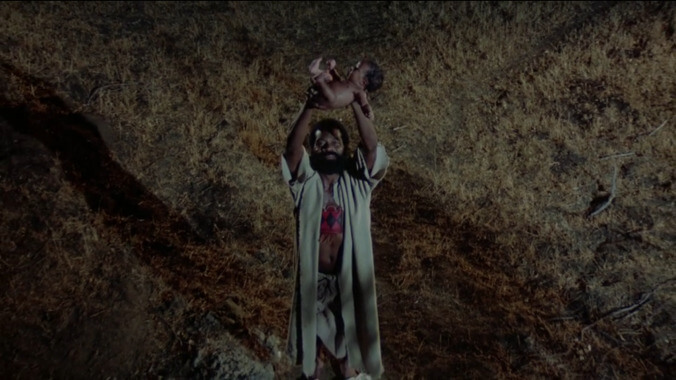
When the original Roots miniseries aired nearly four decades ago, it was unlike anything else on TV: an award-winning historical phenomenon (based on Alex Haley’s bestseller) that broke ratings records with an all-star cast. The story of Kunta Kinte and his descendants was the first honest, horrific TV depiction of slavery, making clear America’s foundation in white supremacy. []
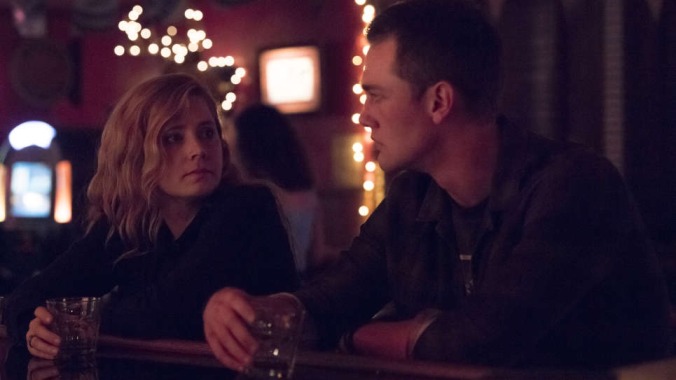
sets its tone as a nightmarish Southern gothic in its first few minutes, spiraling down into a visceral story about gender, violence, control, abuse, and addiction. It’s one of the most striking depictions of self-harm in TV history, and Amy Adams and Patricia Clarkson give performances that sink in one’s skin. Family drama and murder mystery collide spectacularly in this incisively written, beautifully shot knockout. []
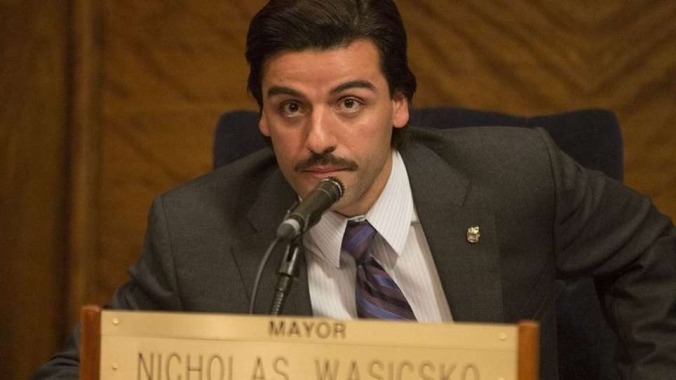
It’s the destiny of every David Simon show to toil in relative obscurity while on the air, only to find an audience and acclaim in the afterlife. Let’s hope that’s also the case for , which, despite being rooted in a different politician’s career, doubles as commentary on the Obama administration. The irresistible force that is a Yonkers mayor’s optimism meets with an immovable object—bureaucracy—grinding his progress to a halt in a beautifully rendered limited series marked by hope, despair, and exceptional performances across the board. []
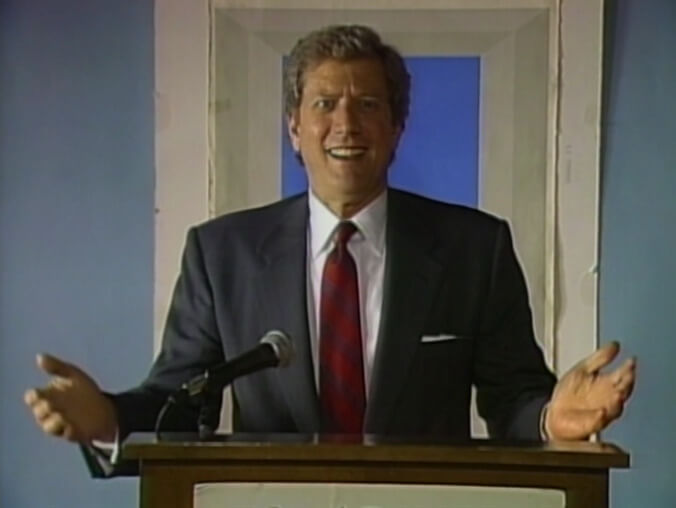
Ahead of the 1988 Democratic presidential primaries, HBO reached out to Doonesbury cartoonist Garry Trudeau to create a fictional candidate to run alongside the real ones. Trudeau would only sign on to the project if HBO could get [Robert] Altman, his “boyhood hero,” to direct. Altman agreed and together they invented Jack Tanner, a Baby Boomer liberal with a telegenic, Kennedy-esque physique who could conceivably compete against Michael Dukakis and Jesse Jackson. [Michael] Murphy’s genial disposition and warm personality were instrumental to his viability as a fictional candidate, but they also helped endear him to real politicians, media personalities, and operatives with whom he hobnobbed during the primaries. Everyone quickly caught on to Altman and Trudeau’s game, and many subsequently played along by providing cameos throughout the series. In the beginning, however, Murphy and a young Cynthia Nixon, who played Tanner’s impassioned daughter, fooled people like Pat Robertson and Gary Hart into believing that he was “for real” (the cheeky slogan for Tanner’s campaign). A nice smile and a firm handshake go a long way in politics. []
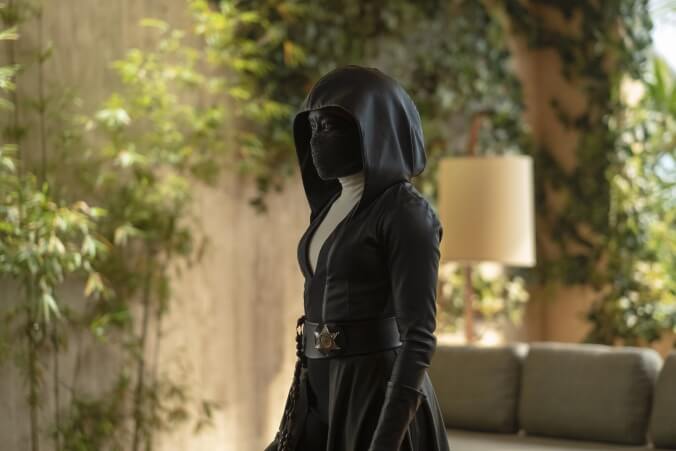
Watchmen always deserved to be a miniseries. No one expected it to be this miniseries, a continuation untethered from theatrical run times, cinematic tidiness, or fidelity to the source material, arriving at something searing, surreal, and truly in the spirit of Alan Moore’s costumed-vigilantes-as-fascists philosophy—whether Moore likes it or not. Showrunner Damon Lindelof works from the blueprint (emphasis on “blue”) he set for one of the decade’s best shows: Like The Leftovers, Watchmen is a gutting, occasionally gut-busting contemporary parable set in the wake of a global catastrophe. But the psychic wounds inflicted by a Freudian space squid have nothing on the earthbound racism Watchmen exposes by unmasking American history, in sequences like Nicole Kassell’s harrowing re-staging of the Black Wall Street Massacre and It’s a superhero show about so much more for a superhero-obsessed, so-much-more era, every episode an “Avengers assemble” roll call of onscreen excellence. []
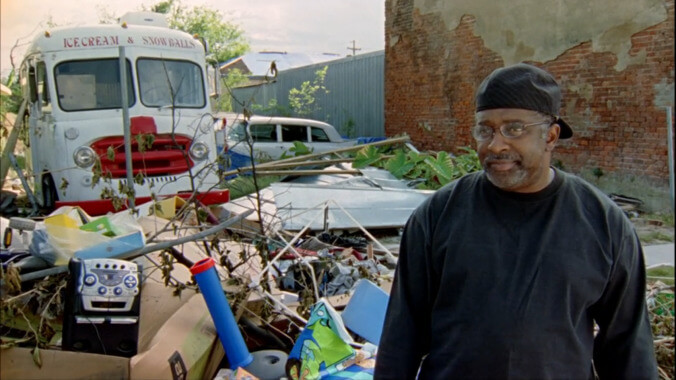
From :Spike Lee’s exhaustive, essential documentary lines up what must be a hundred interview subjects to talk about the days leading up to Hurricane Katrina, the flood that ensued, and—the most underreported part of the whole tragedy—the nightmare of trying to rebuild the city. The flood footage is as startling as ever, right down to the bloated bodies floating in submerged streets. But even more disturbing is the exhausted unanimity of the people Lee talks with. Whether they’re black or white, rich or poor, they’re all victims of a presumption that became more widely vocalized in the months after Katrina: that they were somehow asking for it. When The Levees Broke focuses on the frustrations of people who were stranded in a post-apocalyptic wasteland, facing gun-toting government agents telling them where they could and couldn’t go. Just for recording their descriptions of being herded into pens and scattered across the country, When The Levees Broke is as significant a piece of documentary reporting as The Sorrow And The Pity.
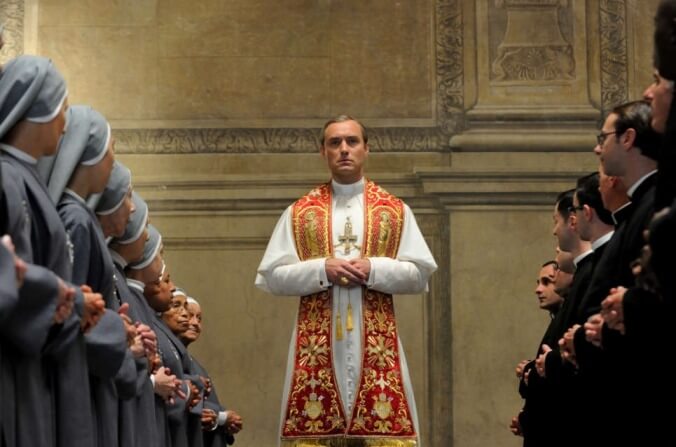
It was the marketing campaign that launched a , an HBO offering earning the unbridled scorn of the internet on the basis of a ridiculous title, an absurd premise, and a seemingly stern tone. The Young Pope itself proved to be even more ridiculous in execution—completely to the show’s benefit. Much as the titular pontiff, Lenny Belardo (Jude Law), flew in the face of Catholic convention, The Young Pope was everything you wouldn’t expect from a prestige drama, a surreal and self-aware affair that replaced pretensions of subtlety with a rich sense of humor bordering on camp. At any point, its strangeness could have fallen apart, but writer-director Paolo Sorrentino held the unlikely enterprise together with a true craftsman’s hand, his gorgeously considered shots giving equal weight to the sacred history of the Vatican and the kangaroo randomly hopping through its gardens. And it was all driven forward by a marvelous performance from Law, who managed to wring every possible interpretation out of Lenny’s actions. Was he a true believer obfuscating to keep his enemies off track? An agnostic who doubted the Holy Spirit he ostensibly represented? The greatest hypocrite to take St. Peter’s throne since ? The Young Pope kept viewers constantly guessing, and managed to make the guessing infinitely more amusing than any snide tweet. []
 Keep scrolling for more great stories.
Keep scrolling for more great stories.
